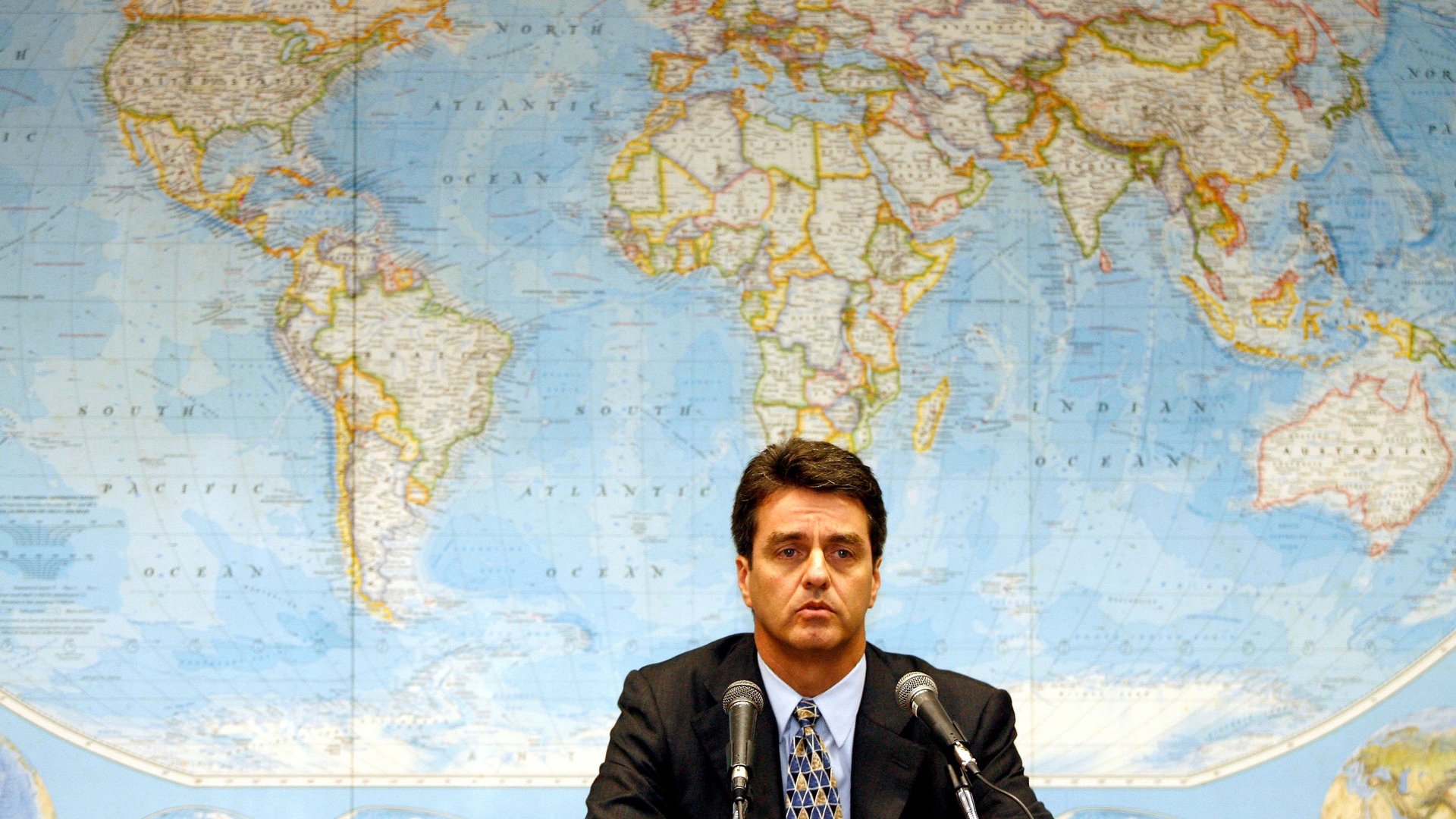Can this man rescue the paralyzed architecture of global trade?
The World Trade Organization’s 159 member-countries have selected a new director-general—Roberto Azevedo, a Brazilian economist and diplomat who represented his country at the forum for the last five years. He takes over as the very mission of the WTO is under threat, and he’ll need to be very skilled, or very lucky, to steer the WTO back to relevance—as it stands, regional mega-trade deals are about to eclipse the venerable architecture that has upheld global trade since 1946.


The World Trade Organization’s 159 member-countries have selected a new director-general—Roberto Azevedo, a Brazilian economist and diplomat who represented his country at the forum for the last five years. He takes over as the very mission of the WTO is under threat, and he’ll need to be very skilled, or very lucky, to steer the WTO back to relevance—as it stands, regional mega-trade deals are about to eclipse the venerable architecture that has upheld global trade since 1946.
You probably have some questions.
Wait, the WTO is irrelevant?
When it comes to enforcing existing free trade rules and mediating disputes over just who’s subisidizing what and whether they should be penalized, the WTO is your place. For example, Azevedo won WTO judgments against the US for illegally hindering Brazilian exports of sugar and orange juice, and for subsidizing cotton. But what people really care about is whether the WTO is going to be a venue to keep knocking down trade barriers.
I don’t even know who Azevedo is replacing.
Did I mention the organization has become a little obscured lately? It’s Pascal Lamy. He’s French. And now that he’s making his exit, next December’s ministerial meeting…
In Doha, right? Like, for the last 12 years?
It’s actually just called the “Doha round,” but yes, since 2001 the WTO has been trying to complete a round of negotiations that would lower tariffs around the world. Rich economies like the US and Europe differed with emerging markets like China, India and Brazil over what that would look like—particularly over trade barriers for agricultural products. No one wants to admit that the trade talks are the first to fail since World War II, so they have basically stalled.
FOR 12 YEARS?
People have gotten frustrated, particularly officials in the United States and Europe. That’s why we see renewed interest in mega free-trade deals, like the Trans-Pacific Partnership (an Asian free trade bloc promoted by the US), the Regional Comprehensive Partnership (an Asian free trade bloc promoted by China) and the Trans-Atlantic Investment and Trade Partnership (an EU-US free trade pact). But if all these big side projects succeed while the WTO stalls, it’s not a good sign for the organization—or the idea of a global trade regime rather than competing regional blocs.
What does Azevedo think about that?
The subtext for his selection was the debate between the exclusive trade pacts and the multi-lateral WTO. Azevedo’s main rival was Herminio Blanco, a lead negotiator of NAFTA and representative of Mexico, a TPP country that shares a major trade agenda with the US. Brazil, meanwhile, isn’t likely to be involved in any of the big pacts, and has blocked major agreements more often than not. Thus, while he’s pledged independence, Azevedo’s appointment reflects the rising importance of emerging markets and, critics say, skepticism about a new deal. He says he is committed to finishing the Doha round and frets about the WTO being marginalized, but also thinks that pacts like the TPP could put pressure on emerging markets to compromise with their wealthier counterparts.
Can he do anything about it?
Alone? No. It’ll take concessions from the countries involved, but Azevedo will play a role in trying to shepherd them toward agreement. Some say that his influence with emerging markets, earned fighting Brazil’s trade battles over the last decade, will be key. But if the WTO continues its march towards irrelevance, it’s not just a problem for him and for the WTO’s bureaucracy. If the WTO isn’t involved in the emerging global trade regime, its work as a mediator will become less important, too, consigning the world to a fragmented approach to global commerce.